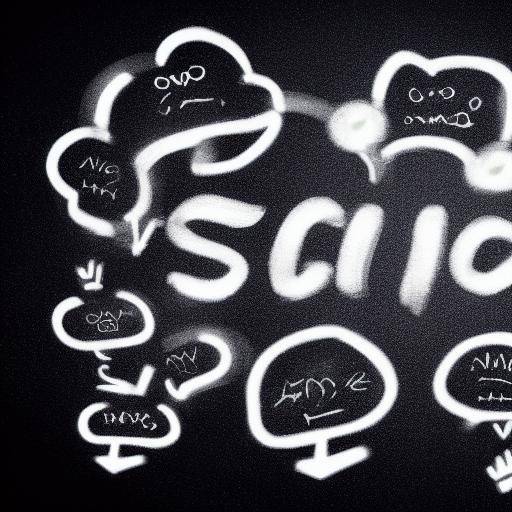
In modern society, we are constantly confronted with decisions that require an election between immediate gratification and long-term reward. This dilemma is common in various areas of life, from financial decision-making to the establishment of personal goals. To address this challenge, it is essential to understand the importance of personal purpose in the practice of delayed gratification. In this article, we will explore in detail how personal purpose influences our ability to postpone gratification and seek long-term goals, in conjunction with motivation.
Introduction
The ability to delay gratification, i.e. to give up immediate satisfaction in order to gain greater benefits in the future, has become a topic of great interest in fields such as psychology, behavioral economy and personal development. Many studies have shown that the ability to resist instant gratification is closely associated with achieving significant goals and achieving long-term success. It is in this context that personal purpose plays a crucial role.
Personal purpose is what gives meaning and direction to our lives. It represents our fundamental values, our beliefs and our deepest goals. When we are aligned with our personal purpose, we are able to maintain a long-term approach, overcome obstacles and make decisions that bring us closer to our highest aspirations. In this regard, personal purpose not only influences our daily choices, but also determines our willingness to postpone gratification and make long-term commitments.
History and Background
To fully understand the importance of personal purpose in the practice of delayed gratification, it is useful to explore the historical evolution of these concepts and their relevance in different cultural contexts. In ancient Greek philosophy, for example, the importance of pursuing significant and transcendent goals was recognized, which is closely aligned with the modern notion of personal purpose. Likewise, in various religious and spiritual traditions, the value of patience and resistance against instant temptations has been promoted.
During the 20th century, prominent psychologists such as Walter Mischel conducted pioneering studies on delayed gratification, revealing their impact on the cognitive and emotional development of individuals. As the behavioral economy gained relevance, the ability to resist instant gratification became a central issue of research in the area of financial decision-making, demonstrating its influence on the accumulation of long-term wealth.
Deep analysis
By entering into the analysis of the relationship between personal purpose and delayed gratification, it is crucial to recognize the benefits emanating from this connection. The clarity around our personal objectives and the sense of mission that the personal purpose provides us with the psychological strength necessary to resist the immediate rewards that could divert us from our path to long-term success. This ability to focus and self-discipline is a significant advantage in seeking ambitious goals and building a meaningful life.
However, it is also important to consider the challenges that arise in trying to align the personal purpose with the practice of delayed gratification. The contemporary environment, characterized by the omnipresence of instant stimuli and the culture of immediate consumption, can represent a significant barrier for those seeking to maintain a long-term approach. Facing these distractions and temptations requires a high degree of self-consciousness, emotional self-management and commitment to the fundamental goals.
Comprehensive review
To understand how the personal purpose and delayed gratification are applied in practice, it is essential to reflect on success stories and best practices in various contexts. Business literature, for example, offers numerous examples of leaders who, guided by a clear personal purpose, have demonstrated the ability to postpone immediate gratification in favor of long-term business strategies. The ability of these leaders to resist short-term pressures and stay focused on their long-term goals has been critical to achieving meaningful and sustainable results.
In addition, the exploration of ways in which personal purpose and delayed gratification are intertwined in the field of education and personal development reveals important implications for the growth and well-being of individuals. Individuals who have interiorized a clear purpose tend to demonstrate greater ability to postpone gratification, as they value long-term rewards on transient distractions. This phenomenon is reflected in academic performance, emotional resilience and the ability to establish meaningful relationships.
Comparative analysis
By comparing personal purpose, delayed gratification and motivation, it is possible to identify their fundamental interactions and differences. While personal purpose sets the course and meaning of our long-term actions, delayed gratification implies giving up instant rewards for future benefits. On the other hand, motivation acts as the driving force behind our commitment to personal purpose and helps us overcome the challenges associated with delayed gratification.
Although these concepts operate in close synergy, each provides unique and indispensable elements for the achievement of significant objectives. Personal purpose provides a solid framework for decision-making, delayed gratification requires the cultivation of self-discipline and resilience, and motivation encourages us to persevere in the midst of difficulties.
Practical Tips and Accessible Recommendations
For those seeking to integrate personal purpose into the practice of delayed gratification, it is essential to have concrete strategies and recommendations. Some of these include:
- Clearly define your long-term goals and connect them to your personal purpose.
- Establish a system of deferred rewards, where you will celebrate future achievements.
- Create an environment that minimizes distractions and promotes concentration on your fundamental goals.
- To cultivate self-discipline through the practice of full attention and emotional self-control.
- Find the support of communities or mentorships that share your values and encourage you to maintain the long-term approach.
Perceptions of Industry and Expert Reviews
The visions of experts and leaders in different fields provide a powerful vision of the importance of personal purpose in the practice of delayed gratification. According to the well-known psychologist Angela Duckworth, the connection between personal purpose and self-discipline is essential to achieving long-term success. Business leaders, like Warren Buffett, have highlighted the importance of resisting short-term temptations and maintaining a clear vision of fundamental goals.
In the educational field, researchers like Carol Dweck have highlighted the impact of personal purpose on the development of the growth mentality and the ability to postpone gratification in pursuit of significant and lasting achievements. These perspectives reinforce the idea that personal purpose not only influences our daily choices, but also enables us to persevere in the face of fleeting difficulties and temptations.
Case Studies and Practical Applications
The presentation of real cases in various areas, such as enterprise, education, and personal development, vividly illustrates the interaction between the personal purpose and the practice of delayed gratification. For example, Steve Jobs's story and firm commitment to Apple's long-term vision demonstrates how personal purpose can drive strategic decisions that need to resist pressure for immediate results. In the educational context, the application of programmes that encourage the connection between personal purpose and delayed gratification has shown positive impacts on academic performance and the formation of long-term study habits.
Future Trends and Predictions
As society continues to evolve, major developments are expected around the role of personal purpose in the practice of delayed gratification. The integration of personal progress tracking technologies and gamification-based motivation offers new opportunities to strengthen commitment to long-term goals. In turn, the diffusion of integrative approaches that link personal purpose, delayed gratification and motivation in the educational and business sphere promises to generate significant impacts on the formation of leaders and the promotion of resilience to adversity.
Conclusion
Personal purpose therefore plays a key role in the practice of delayed gratification by providing a strong framework for long-term decision-making, cultivating self-discipline and strengthening personal motivation. By embracing our personal purpose, we are able to resist instant rewards for meaningful and lasting goals. This integration of personal purpose, delayed gratification and motivation represents an integral approach to achieving personal and professional success.
Frequently asked questions
1. What is the difference between delayed gratification and denial of wishes?
Delayed gratification implies postponement of instant satisfaction in order to obtain long-term rewards, while denying desires implies completely relinquishing the satisfaction of an impulse or desire. Delayed gratification focuses on the intelligent management of our emotions and needs, while denial of desires can have more drastic implications in terms of emotional suppression.
2. Is it possible to apply delayed gratification to different aspects of life?
Yes, delayed gratification is applicable to various areas, such as personal finance, health, education, professional development and interpersonal relationships. The ability to postpone gratification can strengthen long-term decision-making in each of these areas.
3. How does motivation influence the practice of delayed gratification?
Motivation acts as a key booster to maintain commitment to delayed gratification. A strong motivation towards significant goals can counter the temptations of instant gratification and strengthen resilience against obstacles.
4. What is the impact of personal purpose on long-term financial decision-making?
Establishing a clear personal purpose can influence financial decision-making by aligning our choices with our long-term values and goals. This connection between personal purpose and financial management can favor future planning and the pursuit of economic stability.
5. How can education promote the connection between personal purpose and delayed gratification?
Education can foster the integration of personal purpose through the promotion of self-consciousness, the formulation of significant goals and the promotion of resilience to instantaneous temptations. The configuration of educational environments that support this connection can enhance the integral development of students.
6. What is the importance of self-assessment in the practice of delayed gratification?
Self-assessment is fundamental to the practice of delayed gratification, as it allows us to understand our strengths and areas of opportunity in relation to postpone immediate satisfaction for long-term benefits. Reflection on our behavior patterns and awareness of our underlying motivations enables us to develop effective strategies for gratification management.
In conclusion, the connection between personal purpose, delayed gratification and motivation represents an area of deep interest in fields such as psychology, behavioral economy and personal development. Understanding these concepts and their interaction offers significant opportunities to strengthen the long-term approach, foster self-discipline and pursue transcendental goals. By integrating personal purpose into the practice of delayed gratification, we can forge a path towards achieving meaningful and lasting goals, generating a positive impact on our lives and communities.
With this comprehensive vision, the importance of understanding the personal purpose and its relation to delayed gratification, in conjunction with motivation, is evident as a path to long-term personal and professional success.
Throughout this article, the influence of personal purpose in the practice of delayed gratification has been explored in detail, highlighting its relevance in various areas of life and providing fundamental perspectives for understanding this relationship. By integrating strategies, practical advice, expert views and relevant applications, a comprehensive framework has been delineated that enriches the understanding of these fundamental concepts.
With the look in the future, developments are expected primarily to broaden our understanding of the interaction between personal purpose, delayed gratification and motivation, in order to strengthen our commitment to meaningful and sustainable goals.
I hope this article will be of your pleasure and meet the requirements. Can I help you with something else?



















